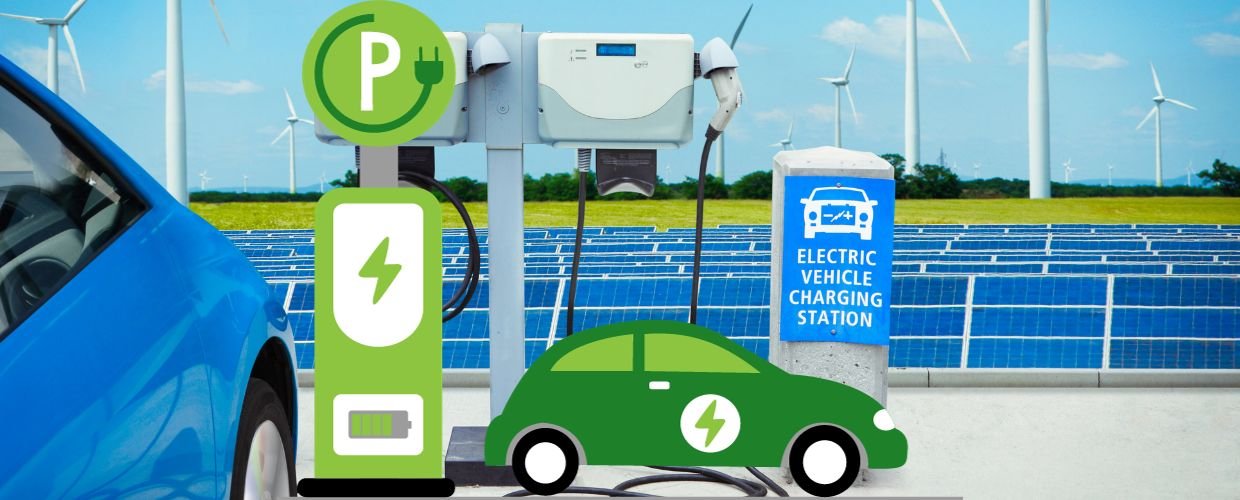Electric vehicle charging stations (EVCS) have emerged as a critical infrastructure in our transition to cleaner and more sustainable transportation. In a world grappling with environmental challenges and the need to reduce carbon emissions, EVCS plays a pivotal role in supporting the widespread adoption of electric vehicles (EVs). This comprehensive exploration delves into the realm of electric vehicle charging stations, uncovering their significance, applications across various sectors, and their transformative potential for a greener and more sustainable future of transportation.
The Significance of Electric Vehicle Charging Stations
Electric vehicle charging stations represent a fundamental shift in how we fuel our vehicles. As the world seeks alternatives to traditional internal combustion engines, these stations provide a vital charging infrastructure for EVs, addressing range anxiety and enabling EV owners to recharge their vehicles conveniently. The significance of electric vehicle charging stations lies in their capacity to accelerate the transition to electric mobility, reduce greenhouse gas emissions, and promote sustainable transportation practices.
Eliminating Range Anxiety
One of the primary benefits of electric vehicle charging stations is eliminating range anxiety. Range anxiety refers to the fear of running out of battery power before reaching a charging point, a concern that has hindered EV adoption. With an extensive network of charging stations, EV drivers can confidently plan their journeys, knowing they can recharge their vehicles at various points. This newfound assurance not only enhances the convenience of EV ownership but also contributes to the growth of the EV market.
Reducing Greenhouse Gas Emissions
Electric vehicle charging stations play a pivotal role in decreasing greenhouse gas emissions associated with transportation. As more vehicles shift from gasoline and diesel to electricity, the overall carbon footprint of the transportation sector decreases. Charging stations facilitate this transition by providing a clean and convenient energy source for EVs. The shift to electric mobility is crucial to achieving global sustainability goals and mitigating climate change.
Encouraging Sustainable Transportation Practices
EV charging stations encourage sustainable transportation by promoting clean energy sources and reducing air pollution. Electric vehicles produce zero tailpipe emissions, improving air quality in urban areas and reducing the health risks associated with traditional combustion engines. Charging stations enable the use of renewable energy sources and contribute to creating more livable and healthier cities.
Types of Electric Vehicle Charging Stations
Electric vehicle charging stations have various types and levels to accommodate different charging needs and scenarios.
Level 1 Charging (Standard Household Outlet)
Level 1 charging utilizes a standard household 120-volt outlet to charge an electric vehicle. While this method is the slowest, it is the most accessible and can be used with a basic power cord provided by the vehicle. Level 1 charging is ideal for overnight charging at home and is suitable for plug-in hybrid electric vehicles (PHEVs) and shorter commutes.
Level 2 Charging (240-Volt AC Charging Stations)
Level 2 charging is a faster option, utilizing a 240-volt AC charging station. These stations can be installed at home, workplaces, and public charging locations. Level 2 charging significantly reduces charging time, making it suitable for daily and longer trips. It is the most common type of charging station found in residential and public settings.
Level 3 Charging (DC Fast Charging)
Level 3 charging, also known as DC fast charging, is the fastest charging option for EVs. These high-powered charging stations can provide a significant amount of charge quickly, making them ideal for long-distance travel and quick stops. Level 3 charging stations are commonly found along highways and at service centers.
Applications of Electric Vehicle Charging Stations
Electric vehicle charging stations find applications across various sectors, each benefiting from the enhanced accessibility and sustainability they offer.
Residential Charging
EV charging stations enable homeowners to charge their vehicles conveniently in residential settings. Level 2 charging stations installed in garages or driveways provide a reliable and efficient way for EV owners to start each day with a fully charged battery. This convenience encourages EV adoption and supports sustainable commuting practices.
Workplace Charging
Workplace charging stations promote sustainable commuting among employees. Employers can install EV charging infrastructure in office parking lots, making it convenient for employees to charge their vehicles while at work. It encourages EV adoption and demonstrates a commitment to environmental stewardship.
Public Charging Infrastructure
Public charging infrastructure includes charging stations at various public locations, including shopping centers, restaurants, and recreational areas. These stations allow EV drivers to charge their vehicles while on the go, promoting longer trips and easing range anxiety. Public charging infrastructure is essential for expanding the EV market and supporting sustainable transportation.
Fleet Charging
Fleet operators, including taxi companies and delivery services, benefit from electric vehicle charging stations. Fleet charging infrastructure allows operators to maintain and recharge their electric vehicle fleets efficiently, reducing operating costs and emissions. This application is crucial for commercial and municipal fleets transitioning to electric mobility.
Challenges and Ethical Considerations
While electric vehicle charging stations hold immense promise, they also present challenges and ethical considerations that require careful attention.
Charging Infrastructure Accessibility
Ensuring equitable access to electric vehicle charging stations is essential. Efforts must be made to make charging infrastructure accessible, regardless of socio-economic status or geographic location. Charging stations should be strategically placed in underserved areas to reduce disparities in EV adoption.
Energy Source and Environmental Impact
The energy source used for charging stations is crucial for minimizing the environmental impact of electric vehicles. Charging stations should prioritize using renewable energy sources to ensure that EVs are environmentally friendly. The ethical consideration here is to reduce the carbon footprint of the entire EV ecosystem, from electricity generation to vehicle operation.
Cost and Pricing Transparency
The cost of electric vehicle charging stations varies, and pricing models can be complex. Ensuring transparency in pricing and providing clear information to users is essential to prevent price gouging and ensure fair access to charging services. Ethical charging practices should prioritize transparency and affordability.
The Future of Electric Vehicle Charging Stations
Electric vehicle charging stations are poised to assume an even more substantial role in shaping the future of transportation, fostering accessibility, sustainability, and innovation.
Expanded Charging Infrastructure
As the adoption of electric vehicles continues to grow, an expanded and more robust charging infrastructure will be necessary. This expansion will include more Level 2 and 3 charging stations in residential areas, workplaces, and public spaces. An increased number of charging stations will reduce waiting times and further encourage EV adoption.
Advanced Charging Technologies
The future of electric vehicle charging will see advanced charging technologies, including faster charging speeds and wireless charging options. These innovations will make EVs even more convenient and competitive with traditional vehicles, accelerating the transition to electric mobility.
Integration with Renewable Energy
Electric vehicle charging stations will increasingly integrate with renewable energy sources like solar and wind power. This integration will enable EVs to be charged using clean energy, reducing their environmental impact and supporting sustainable transportation practices.
Conclusion
Electric vehicle charging stations are not just infrastructure for powering EVs; they are the backbone of a more sustainable and eco-conscious future of transportation. Their significance lies in their capacity to eliminate range anxiety, reduce greenhouse gas emissions, and promote sustainable commuting practices. As electric vehicle charging stations continue to evolve, ethical considerations, accessibility, and environmental impact must guide their development and deployment.
The future they envision is one where electric mobility is accessible to all, where charging is clean and efficient, and where transportation aligns with global sustainability goals. Electric vehicle charging stations are the architects of a future where clean and green transportation leads us toward a more sustainable and environmentally friendly world.












